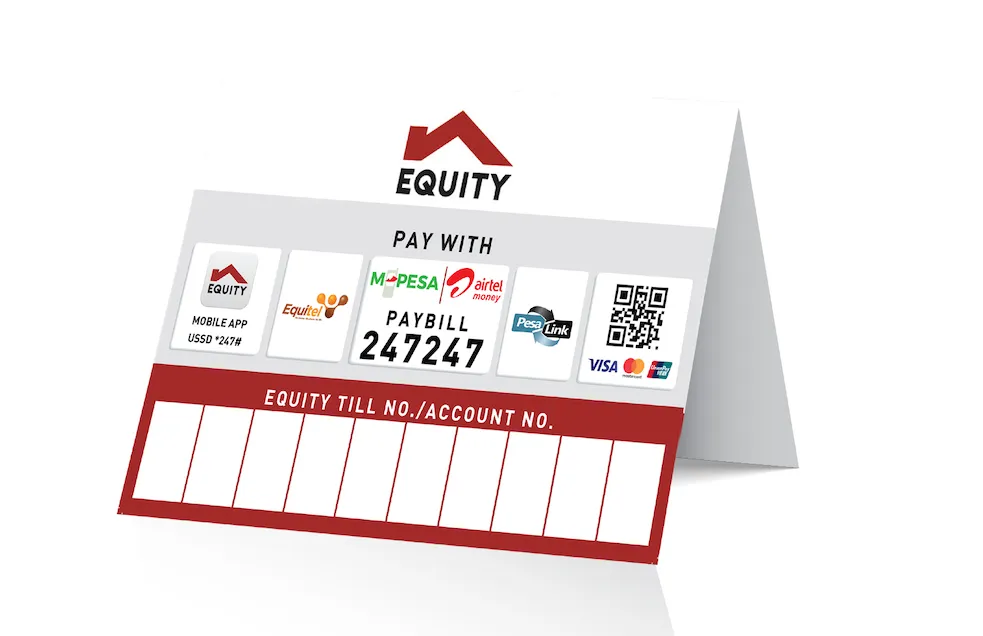How Digital Till Payments Can Empower MSMEs to Scale and Thrive

In today’s fast-changing economy, Micro, Small, and Medium Enterprises (MSMEs) are the backbone of many developing nations, including Kenya. They provide employment, stimulate innovation, and drive local economies. However, scaling up remains a challenge for many MSMEs due to financial constraints, limited access to markets, and operational inefficiencies. One solution gaining traction is digital payment systems, particularly till payments.
These systems have emerged as an effective way for businesses to manage their transactions, streamline operations, and ultimately, scale up. Banks, in collaboration with MSMEs, can play a pivotal role by offering comprehensive till payment solutions that go beyond just processing payments. This article explores how banks can empower MSMEs to grow by leveraging till payments and fostering an ecosystem of financial inclusion.
Understanding Till Payments
Till payments refer to a point-of-sale (POS) system where businesses, typically MSMEs, use a mobile number registered with a bank to accept payments. Customers simply send money to the business’s designated number, which is linked to the merchant’s account. This eliminates the need for physical cash, making transactions faster, safer, and easier to track.
Till payments offer several advantages:
- Convenience: Businesses can receive payments from customers using mobile money platforms, which are widely used in Kenya.
- Transparency: Digital records make it easier to monitor transactions, reducing the risk of fraud or loss.
- Efficiency: These systems automate payment processes, helping MSMEs focus on operations rather than cash handling.
Challenges Faced by MSMEs
Before diving into how till payments can solve problems for MSMEs, it’s essential to recognize the core challenges these businesses face:
- Access to Credit: Many MSMEs struggle to secure loans from traditional banks due to a lack of credit history or collateral. This limits their ability to expand.
- Operational Costs: Small businesses often lack the tools to automate and streamline processes, which leads to inefficiencies.
- Market Reach: MSMEs may struggle to access broader markets due to a lack of digital presence or the ability to handle larger, more complex transactions.
The Role of Banks in Empowering MSMEs
Banks have the unique opportunity to bridge the gap between MSMEs and financial inclusion. They can do this by offering tailored till payment solutions and services that address the specific needs of these businesses. Here’s how banks can make a real impact:
1. Providing Easy Access to Digital Financial Services
Many MSMEs operate in cash-heavy environments. Transitioning them into the digital economy through till payments can significantly enhance their growth potential. Banks can create simplified onboarding processes for till payment services, ensuring that even the smallest businesses can integrate into the system with minimal hassle.
By offering these services at low or no upfront cost, banks can encourage more businesses to go digital. Furthermore, banks can educate MSMEs on the benefits of using till payments, such as increased transaction security, better record-keeping, and improved business credibility.
2. Facilitating Access to Credit
One of the most significant hurdles for MSMEs is accessing credit. With till payments, banks can track the transaction history of MSMEs, creating a reliable data trail that can be used to assess the creditworthiness of businesses.
By analyzing the inflow and outflow of payments through till accounts, banks can offer tailored credit facilities. For instance, a bank could develop a loan product specifically designed for MSMEs based on their till payment volume. This would provide MSMEs with the financial flexibility they need to expand while reducing the risks typically associated with lending to small businesses.
3. Enhancing Financial Management
MSMEs often lack the expertise to manage their finances efficiently. Banks can provide value-added services alongside till payment solutions, such as automated accounting tools or financial management platforms. These tools could help MSMEs keep track of their income, expenses, and profits, enabling better business decisions.
Additionally, banks could offer educational resources or workshops focused on financial literacy, helping business owners understand the fundamentals of managing cash flow, pricing, and scaling operations.
The Future of Till Payments for MSMEs
The future looks bright for MSMEs that embrace digital payment solutions like till payments. As banks and fintech companies continue to innovate, we can expect even more features and benefits to be introduced. For instance, integrating AI-powered analytics into till payment platforms could help businesses predict market trends, optimize pricing, and identify new opportunities for growth.
Moreover, the integration of till payments with e-commerce platforms can open new revenue streams for MSMEs by allowing them to reach customers beyond their immediate geographic location. With the world becoming more digital, having a robust till payment system is no longer optional—it’s essential for survival and growth.
At MUIAA LTD, we are committed to empowering MSMEs through cutting-edge financial solutions where we connect lenders and borrowers so that business ideas can be financed through business loans. Whether you’re looking to streamline your payment processes, access tailored financing options, or enhance your financial management, we are here to help you scale up. Visit muiaa.com or contact us today to learn more about how we can support your business’s growth journey.











